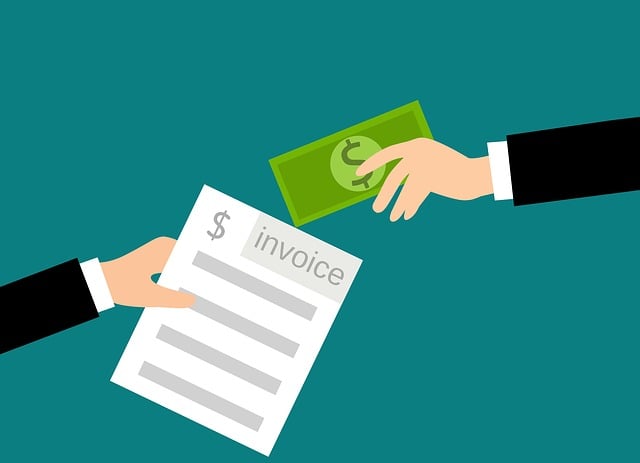Invoice factoring is an alternative financing method that offers businesses immediate financial relief by converting accounts receivable (outstanding invoices) into funding, providing consistent cash flow. This solution is ideal for small and medium-sized enterprises (SMEs), enabling them to manage expenses, fuel growth, and navigate market volatility without traditional banking loans. By selling invoices to a third-party factor, businesses gain quick access to funds, avoiding debt collection and ensuring steady cash flow. The process involves the factor collecting payments from customers and settling balances, with businesses benefiting from streamlined accounts receivable management and improved financial stability. When choosing an invoice factoring company, select partners with expertise, strong reputations, and transparent funding solutions for optimal consistent cash flow support.
Invoice factoring offers businesses a powerful solution for reliable and immediate funding. In today’s fast-paced market, maintaining consistent cash flow is essential for growth. Understanding invoice factoring can unlock this steady stream of capital, enabling firms to avoid the delays and risks associated with traditional financing. This comprehensive guide explores how factoring works, its benefits, and crucial considerations when choosing a provider, ensuring businesses access the funding they need without disruption.
- Understanding Invoice Factoring: Unlocking Consistent Cash Flow
- How Invoice Factoring Works: A Step-by-Step Guide
- Benefits of Using Invoice Factoring for Business Funding
- Navigating the Process: Choosing the Right Factoring Company
Understanding Invoice Factoring: Unlocking Consistent Cash Flow

Invoice factoring is a financial solution that enables businesses, especially those with outstanding invoices, to access immediate funding. By selling their accounts receivable at a discount, companies can unlock a steady stream of cash flow, providing them with the capital they need to sustain operations and fuel growth. This alternative financing method is particularly beneficial for small and medium-sized enterprises (SMEs) that often face delays in receiving payments from clients, leading to cash flow inconsistencies.
Through factoring, businesses can bypass traditional banking loans and enjoy a more flexible funding option. It allows them to maintain control over their accounts while ensuring they have the resources they require. This consistent cash flow is vital for managing day-to-day expenses, investing in expansion plans, or simply maintaining financial stability during unpredictable market conditions.
How Invoice Factoring Works: A Step-by-Step Guide

Invoice factoring is a financial strategy that enables businesses, especially those with outstanding invoices from customers, to access immediate funding. Here’s a straightforward guide on how this process works:
1. Selling Invoices: Businesses begin by selling their outstanding invoices (which represent money owed by customers) to a third-party factor or finance company. These factors provide the business with a significant portion of the invoice amount upfront, usually within 24 hours.
2. Collection and Monitoring: The factor takes over the accounts receivable management process. They contact the customers to collect the outstanding amounts. This step ensures that the business doesn’t have to deal with debt collection itself, freeing up time and resources.
3. Settlement: Once the invoices are paid by the customers, the factor remits the remaining balance to the business after deducting a fee. This fee covers their services, which typically includes a discount on the face value of the invoice. The business now has access to consistent cash flow without waiting for customer payments.
Benefits of Using Invoice Factoring for Business Funding

Invoice factoring offers a powerful solution for businesses seeking reliable funding, providing several key advantages. One of the primary benefits is the enhancement of a company’s financial stability through consistent cash flow. By utilizing invoice factoring services, businesses can access immediate funds against their outstanding invoices. This enables them to meet short-term financial obligations, cover operational expenses, and even invest in growth opportunities without the usual delays associated with traditional banking processes.
Moreover, this funding method streamlines the accounts receivable management process. Instead of waiting for customers to settle invoices, businesses can receive cash promptly, allowing them to optimize their cash management strategies. This approach is particularly beneficial for companies with uneven cash flow patterns or those dealing with slow-paying clients. It ensures a steady influx of capital, enabling businesses to maintain smooth operations and strategic planning.
Navigating the Process: Choosing the Right Factoring Company

Navigating the process of invoice factoring involves a crucial step: choosing the right factoring company. This decision can significantly impact your business’s access to consistent cash flow, which is vital for sustainable growth and stability. When selecting a factoring partner, it’s essential to consider their expertise, reputation, and customer service. Look for companies with a proven track record of providing efficient and transparent funding solutions, ensuring you receive prompt payments for your invoices.
Additionally, assess the factors’ terms and fees to find an arrangement that aligns with your business needs. Flexible terms, competitive rates, and clear communication can help maintain a healthy working relationship. The right factoring company should offer tailored solutions, enabling you to focus on core business activities while ensuring a steady influx of capital to support operations and strategic initiatives.






